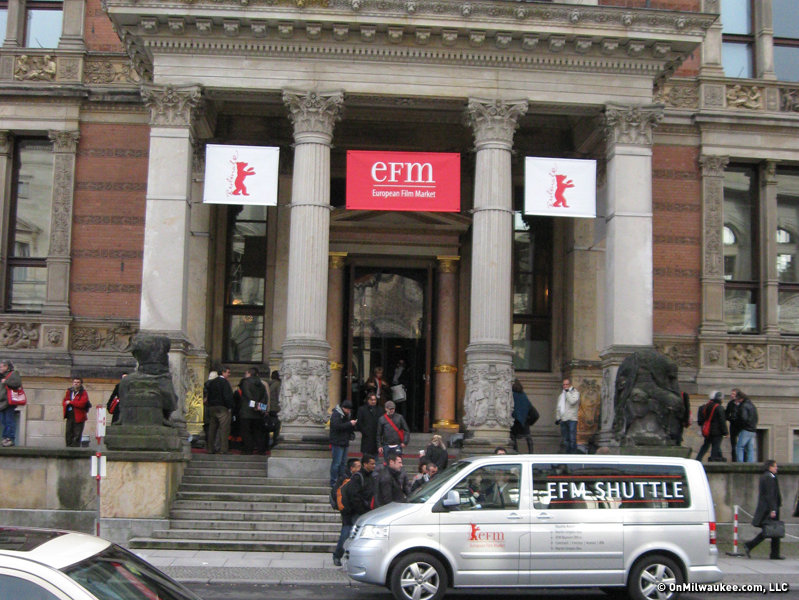BERLIN, Germany -- When I first came to the Berlin International Film Festival in 2003, I expected to be ensconced in the great tradition of European art cinema. While that was and still is the case, I also wade through the morass of the European Film Market.
The market is a nexus for films of all sorts and the juxtaposition of the salaciously hyped B-movie "Lesbian Vampire Killers" with the likes of "Garapa," a sober Brazilian documentary on starvation is the norm at the market.
A film market is essentially a used car dealership for films and the European Film Market at the Berlinale is quickly becoming one of the largest of its kind. Last year, 430 companies from 51 countries participated, with 6,500 film professionals attending. The primary goal of a market is to connect buyers and sellers of films, creating a comfortable marketplace for the transactions that will determine which films of international origin will arrive in cinemas worldwide.
It is at the market where I am able to forge relationships with the various international agencies that will allow Milwaukee Film to screen films that have yet to secure US distribution. Meetings with international sales offices like Fortissimo Films and Celluloid Dreams and the government supported film foundations of Iran (Farabi Cinema Foundation) to Denmark (Danish Film Institute) make the experience invaluable.
The economic crisis is certainly dampening the buying at the market, however as Variety reports the general consensus is that it was not as bad as expected.
Two other areas outside of the traditional festival that have not been dampened by the economic crisis are the Berlinale's heralded Talent Campus and the youth programming section Generation.
The Berlinale Talent Campus is an intensive week-long academy attended by up and coming filmmakers. Over 350 aspiring filmmakers from around the World attend the workshops, lectures and panel discussions given by industry professionals, many of whom are attending the festival with their films.
UW-Milwaukee Film Department graduate Dave Andre attended the program previously; more of our talented pool of aspiring Milwaukee filmmakers should be applying for this incredible opportunity.
The Berlinale also caters to kids.
Since 1978, the Berlinale has produced a competition called Generation, which screen short and feature films made for youth. The Generation program annually admits over 50,000 youth and in an innovative move, an 11-member youth jury actually selects the best films and gives out cash awards.
Let's hope sometime soon children in Milwaukee will be afforded a similar experience.



